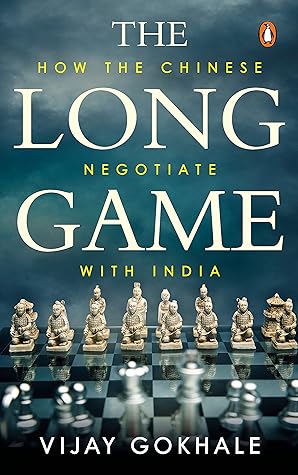More on this book
Kindle Notes & Highlights
The discussion on when and how to recognize the new regime in China appears to have been confined to the tight circle of advisors around the Prime Minister and lacked wider political consultation.
(1) to make India recognize the People’s Republic of China as the sole, legitimate government. Mao was determined not to allow Two Chinas to legally exist at the same time, and this was a core objective; (2) to ensure that India did not join the American-led anti-China camp. Since the Americans were backing Chiang Kai-shek, it stood to reason that India should be asked to prove that it was not an American camp-follower by making a clean break with Chiang Kai-shek and the Nationalist regime; and (3) to utilize India’s international influence to gain diplomatic space.
India assumed that its official declaration recognizing the People’s Republic of China would automatically mean that both sides had also established formal diplomatic relations. This led the Government of India to believe that there would still be time and opportunities after the recognition of the new regime, to raise matters of concern or pursue national security objectives through diplomatic channels. In other words, whereas the Chinese saw the process of recognition as a matter of substantive negotiation, India considered it simply a matter of protocol.
The lapses on India’s part—the absence of wider political consultations within the Indian leadership, the overlooking of its national interest in its anxiety over the timing, and the erroneous assumption that the act of officially recognizing the People’s Republic of China was tantamount to the automatic establishment of formal diplomatic relations—led the Government of India to see the act of recognition as its only objective.
H. Dayal, India’s political officer in Sikkim, advised the government in New Delhi that once the Communist armies had occupied Tibet, it would encourage them to press their country’s long-standing claims to portions of Assam and revive pretentions to suzerainty over the Himalayan states. Dayal went on to add that it might also be too late then to negotiate with the Chinese on Indian interests there, and that even the continuance of the Indian Mission in Lhasa would come into question. 10 However, in New Delhi, a different set of considerations dictated India’s policy.
One of the hallmarks of Chinese diplomatic practice is that they rarely react impulsively.
Their strategy had three elements: strategically they would use the Sikkim Question as leverage for extracting concessions from India; optically they would appear as principled; tactically they would be flexible.
China will always try to set the agenda for negotiations. Few other cultures endow such significance to this stage of the negotiation, presuming that they can negotiate from ambiguity to their own advantage later in the negotiations, but in fact they will then be reminded by the Chinese of the agreed terms and brought back to the track preferred by the Chinese.
China will also, on occasion, select the venue for the talks. The technique is called ‘control on the ground’. The foreign negotiator is placed at a disadvantage by not being on home ground, but rather amidst unfamiliar working conditions, and this affects the negotiator’s comfort level.
The Chinese prepare the field for negotiation in advance. For this, they use both diplomatic and more unorthodox means. Diplomatic means include the creation of new problems or obstacles just prior to the start of negotiations.
As the Chinese diplomats have become more proficient in the English language and in their sense of dress and deportment, the international community tends to regard them as ‘one of us’. Chinese diplomats are not one of us. At the higher echelons, they are all members of the Communist Party of China, and owe their loyalty to the Party above the State. Diplomats in democracies act as agents of the government; Chinese diplomats act as agents of the Party. This is an important distinction. Chinese diplomats are ideological. Logic or reason is, therefore, not likely to convince the Chinese
...more
This highlight has been truncated due to consecutive passage length restrictions.


